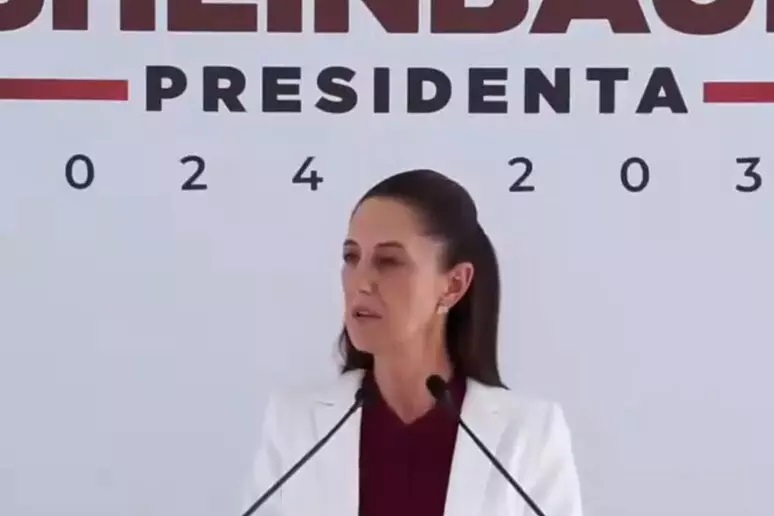Mexico’s President-Elect, Claudia Sheinbaum, Reveals Strong Public Support for Judicial Reform
In a significant development in Mexican politics, President-elect Claudia Sheinbaum has unveiled the results of surveys conducted by her party, the National Regeneration Movement, regarding the proposed judicial reform put forth by President Andrés Manuel López Obrador. The surveys, carried out by reputable firms Enkoll and De las Heras, in conjunction with a demographic analysis conducted by Morena’s statistics department, sought to gauge public sentiment towards the proposed overhaul of the judicial system. The data revealed overwhelming support for the reform, with a substantial majority of respondents voicing their approval.
Strong Public Endorsement for Judicial Reform
The surveys posed a crucial question to the Mexican populace: “From what you know or have heard, do you think it is necessary to carry out a reform of the judicial system?” The responses were resoundingly in favor of reform, underscoring a widespread belief in the necessity of revamping the country’s legal framework to address existing challenges and enhance the efficiency and fairness of the judicial system.
According to the findings presented by President-elect Sheinbaum, 77% of respondents surveyed by De las Heras expressed support for the proposed judicial reform. Similarly, the Enkoll survey reported an even higher approval rating, with 83% of participants backing the initiative. Impressively, the survey conducted by Morena indicated an overwhelming 81% of interviewees in favor of the judicial reform proposal. The collective data from these surveys paints a clear picture of strong public endorsement for the reform efforts championed by President López Obrador.
Collaboration and Validation of Survey Results
The collaboration between reputable research firms and Morena’s internal statistics department underscores a commitment to ensuring the integrity and accuracy of the survey results. By leveraging the expertise of external agencies such as Enkoll and De las Heras, Morena sought to obtain a comprehensive and unbiased understanding of public opinion regarding the proposed judicial reform. The synergy between external research entities and in-house statistical analysts speaks to a meticulous and data-driven approach to soliciting and synthesizing public feedback.
President-elect Sheinbaum’s decision to make the survey results publicly available demonstrates a dedication to transparency and accountability in the governance process. By sharing the survey findings with the Mexican population, she not only elucidates the prevailing sentiment towards judicial reform but also invites constructive dialogue and engagement from citizens on this critical issue. The openness with which the survey data has been disseminated reinforces a culture of participatory democracy and inclusive decision-making within the political landscape of Mexico.
Implications for Judicial Reform Agenda
The overwhelming public support reflected in the survey results holds significant implications for the trajectory of the judicial reform agenda in Mexico. The breadth and depth of approval observed across diverse segments of the population signal a broad-based consensus on the need for transformative changes in the legal system. As President López Obrador’s administration moves forward with its reform initiatives, the backing of a substantial majority of citizens provides a mandate and impetus for meaningful progress towards enhancing the accessibility, transparency, and efficacy of the judicial process.
The collaborative efforts between the government, research firms, and political parties in soliciting and analyzing public opinion underscore a commitment to evidence-based policymaking and democratic governance. By placing a premium on public feedback and responsiveness, President-elect Sheinbaum and her administration are poised to navigate the complex terrain of judicial reform with a foundation of grassroots support and legitimacy. The alignment of public sentiment with governmental actions bodes well for the prospects of successful implementation and enforcement of the proposed reforms in the coming months.
In conclusion, the revelation of robust public support for judicial reform in Mexico represents a pivotal moment in the nation’s political landscape. The convergence of high approval ratings from multiple surveys underscores a collective desire for positive change and systemic improvement within the legal framework. As Mexico embarks on a transformative journey towards judicial reform, the resounding endorsement from its citizens serves as a beacon of hope and unity in the pursuit of a more just and equitable society. President-elect Sheinbaum’s commitment to transparency, collaboration, and citizen engagement sets a positive precedent for inclusive governance and meaningful reform efforts in the days ahead.

